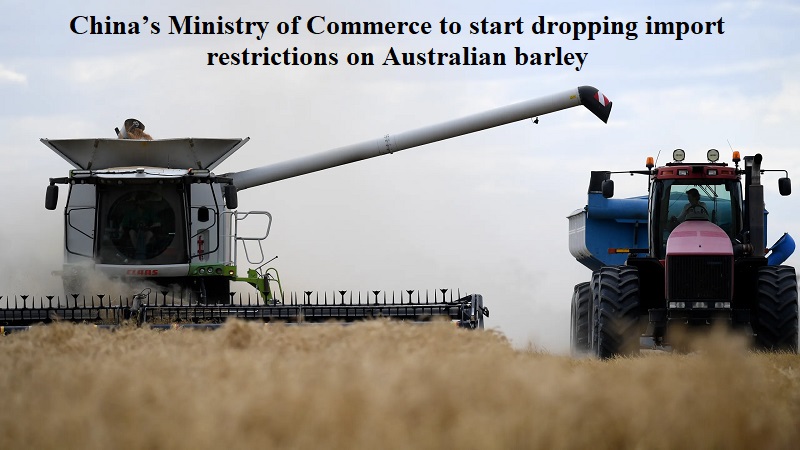
China’s Ministry of Commerce announced on August 4 that it will be lifting import restrictions on Australian barley starting from August 5. For the past three years, anti-dumping and anti-subsidy tariffs had been imposed on Australian barley, impacting bilateral trade worth billions of dollars.
In April, both countries reached an agreement to resolve their trade disputes. As part of the deal, Canberra dropped a World Trade Organization (WTO) case against Beijing, while China agreed to review its import restrictions on Australian goods. Despite this development, some Australian goods, including wine, still face significant import duties in China.
The decision by China to drop the restrictions on Australian barley is expected to have positive implications for the Australian barley market, potentially leading to increased revenue for farmers. However, there are concerns that farmers with malt-quality barley might be exposed to risks if China reverses its decision.
The strained relationship between Australia and its largest trading partner, China, escalated in 2020 when Australia called for an inquiry into the origins of the COVID-19 virus, which was perceived as provocative by Beijing. In response, China took retaliatory actions, including imposing anti-dumping duties on Australian wine and barley.
One significant measure was the implementation of substantial tariffs of 80.5 percent on Australian barley in May 2020. In response, Australia filed a complaint with the WTO in December of the same year.
The dynamics changed when Australia’s center-left Labor party assumed power, leading to an easing of tensions between the two countries. China resumed its purchases of Australian coal in January 2023 after a three-year hiatus, and in May, it announced the resumption of Australian timber imports.
Overall, the decision to lift the import restrictions on Australian barley is seen as a positive step for both Chinese consumers and the local exporters, contributing to the ongoing efforts to ease trade tensions between the two nations.

Post Your Comments